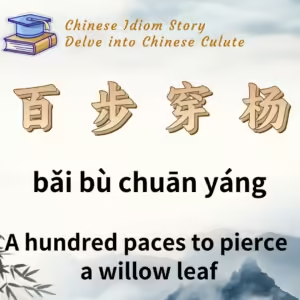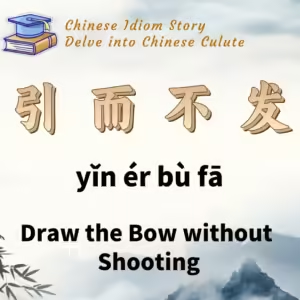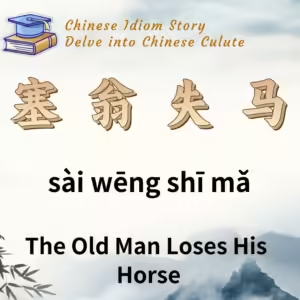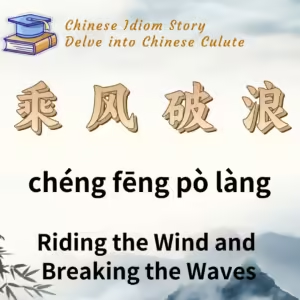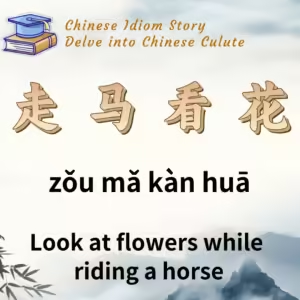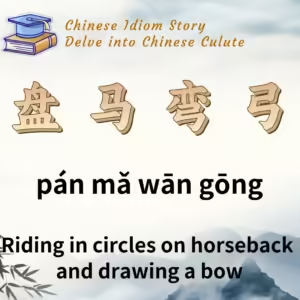
Chinese Idiom: 盘马弯弓 (Pan Ma Wan Gong)
English Translation: Riding in circles on horseback and drawing a bow
pīn yīn: pán mǎ wān gōng
Idiom Meaning: Originally referring to the action of riding a horse in circles while preparing to shoot an arrow, it now metaphorically describes someone who makes a show of readiness or intensity without taking immediate action.
Historical Source: From Han Yu’s poem 雉带箭 (The Arrow with the Pheasant) during the Tang Dynasty.
Idiom Story:
Han Yu, born in 768 AD in He Yang (modern-day Mengzhou, Henan), came from a family of scholars. His father died when he was just three, and he was raised by his elder brother, who also passed away when Han Yu was eleven, leaving him under the care of his sister-in-law. Despite these hardships, Han Yu was an eager learner and demonstrated literary talent from a young age, able to recite poems and compose his own by the age of seven.
In 786 AD, at the age of eighteen, Han Yu left Luoyang to seek education in Chang’an. By 792 AD, he participated in the imperial examination, where the topic was about self-control and the importance of not taking frustrations out on others. Han Yu wrote confidently but unfortunately did not pass. Undeterred, he tried again the following year. Remarkably, the exam prompt was the same as the previous year, and Han Yu, believing in the quality of his earlier work, submitted the same essay. The examiner, Prime Minister Lu Zhi, initially recognized the paper but, upon closer inspection, was impressed with Han Yu’s writing and awarded him the top score. This success led Han Yu to become a jinshi (the highest degree in the imperial examination).
However, the path to securing an official position was challenging, and it took Han Yu four years to find a role in Bianzhou (now Kaifeng, Henan). He eventually worked under the military governor Zhang Jianfeng in Wujun (modern-day Xuzhou, Jiangsu). In 799 AD, during a hunting trip with Zhang, Han Yu was inspired to write the poem 雉带箭, which captures the tension of a hunting scene.
The opening lines describe a quiet field with hunting fires and wild pheasants hiding from a lurking eagle, with a general poised on horseback, bow drawn but not yet released. The key lines read:
将军欲以巧伏人,
盘马弯弓惜不发。
Translation:
The general intends to skillfully ambush,
Riding in circles, bow drawn but not released.
These lines illustrate the act of waiting, full of tension but without immediate action, which resonates with the idiom 盘马弯弓. Over time, this idiom has come to symbolize situations where someone appears poised for action but remains inactive, emphasizing the dramatic flair of readiness without execution.

